Your smartphone stays with you everywhere you go, so it's only a matter of time before you spill coffee all over it or drop it on the ground. For some of you, it has already happened, perhaps even multiple times. That's why we thought it was important to find out which flagship phones are the most life-proof.
According to smartphone insurance provider Squaretrade, a cell phone breaks in the US every two seconds. Research shows that 26% of iPhone users have broken their screen at some point or another, and 15% are currently living with a cracked screen. Those stats are likely very similar for Android smartphones, too — if not higher.
No device is truly unbreakable, so all of these damaged phones have to be fixed somehow, and our clumsiness has given rise to the smartphone repair industry. IBISWorld, a leading market research firm, shows an annual growth of 3% in the smartphone repair industry, with yearly revenue at $4 billion.
Smartphones and clumsiness mix about as good as oil and water, but there are handsets that are a little more rugged and klutz-proof than others. So we tested out some of the most popular premium phones available and came up with a list of the four devices that were most resistant to clumsy people. After quite a bit of research, these are the phones that proved most likely to survive an accident.
Table of Contents
- Comparison Chart
- Comparison Points
- Methodology
- Phone 1: OnePlus 5T
- Phone 2: Pixel 2 XL
- Phone 3: iPhone 7
- Phone 4: BlackBerry KEYone
- Conclusion
Comparison Chart

Amboy Manalo/Gadget Hacks
Key Comparison Points
Our primary goal was to determine which four of the most popular flagship handsets available in the US are ideally suited for people with clumsy tendencies. We narrowed down our list using the following criteria:
- Chassis: The phone must be well built in order to strike that fine balance between aesthetics and durability. Space grade and aircraft aluminum are renowned for being lightweight and strong — two properties that help with a phone's durability factor.
- Glass Panel: Strengthened glass panels are getting more durable with each iteration. Corning's Gorilla Glass 4, for example, offers twice the protection of its predecessor (Gorilla Glass 3). Both Gorilla Glass and Apple's ion-strengthened glass have been chemically altered via ion exchange to improve their strength. According to Applied Science, the process involves the exchange of sodium ions in the glass material with larger potassium ions under high temperature. The end result is a material that's more impact resistant and scratch-proof than regular glass.
- Fingerprint Sensor: The use of high-end materials on smaller components like the fingerprint sensor not only lends to a phone's premium feel, but also adds to the overall sturdiness of the handset. A scratched or cracked sensor can hinder a phone's ability to read fingerprints.
- Camera Lens: A scratched camera lens can affect a phone's photo quality, and a cracked lens can do the same, in addition to compromising a handset's resistance to water and other contaminants. A sapphire crystal lens is harder than glass, which makes this component more durable.
- Water Resistance: The ingress protection, or IP rating, was a standard drawn up by the International Electrotechnical Commission to help measure the resistance of handsets to the elements. The first digit measures resistance to dirt and dust, while the second measures resistance to liquids. In a phone with an IP68 rating, for example, 6 means that it provides complete protection from dust and dirt following an eight-hour test, while 8 denotes its water resistance completely submerged at a depth of one and a half meters for up to 30 minutes.
- Screen Replacement: As the number one reason a phone comes in for repairs, it is important to determine how easy it is to replace a phone's screen assembly in the event of it breaking. The easier it is to replace a screen, the less risk there will be in breaking other components while performing the repair.
- Charging Port Replacement: The charging port is another major component that's likely to break due to wear and tear from the constant cycles of plugging and unplugging. Thankfully, most flagship phones are engineered to have modular charging ports that are easy to replace.
- Screen Assembly Price: Affordable parts translate to cheaper repairs. Data for parts and availability was gathered from FixEZ and Mobile Defenders, two of the most reputable smartphone parts suppliers that I ordered from regularly as a repair tech. We used screen assemblies as the primary example, which consist of the AMOLED or LCD display and protective glass panel. Please note that prices listed are only for the part alone and subject to change.
- Drop Tests: Drop tests are done to determine how resistant a handset is to physical damage. The drop tests performed on these phones were sourced from various YouTube channels. We found that there were no standard drop tests for every phone in our list, so we analyzed multiple videos of different drop tests performed on the same model to draw a more well-rounded conclusion.
- Water Immersion Test: As the name implies, water immersion tests involve leaving a handset underwater in varying depths for a set amount of time, to determine how well it's protected against liquid damage. Again, these tests were sourced from various YouTube channels online.
- Ergonomics: Ease of use is a vital feature that every great smartphone has. A phone that is easy to manipulate with one hand has fewer chances of accidental slips and falls. Key factors in determining a handset's ergonomics are how easy it is to grip, and the ease with which we can reach all corners of the screen and external keys with one hand.
- Slip Resistance: To determine slip resistance, we devised a tilting rig and ran a series of tests with the phones lying flat on top of various materials. Using a protractor app, we measured the angle at which the handset irreversibly slipped off of the different surfaces.
The materials used in our slip resistance rig were wood, cotton, polyester, rubber, paper, and a paper towel. Each device was measured six times for slip angle — three times vertically and three times horizontally — then an average was drawn up and appropriate marks were given.

Amboy Manalo/Gadget Hacks
How We Picked These Phones
With our key comparison points established, we set some ground rules to determine which handsets would make the cut. First, the handsets had to be flagship devices, meaning their starting prices had to be $400 or higher — after all, this is a list of premium durable phones (we ranked sub-$400 phones here). Secondly, we only considered phones that were currently available for sale in the US from a carrier or the phone's manufacturer.
Another important consideration in our final selection was overall build quality. There's no arguing that the current crop of flagships — like the iPhone X and Galaxy Note 8 that sport glass enclosures — are incredibly stunning to behold. Unfortunately, this emphasis on aesthetics usually means sacrificing a handset's overall durability. Even with cutting edge engineering, such as the iPhone's steel reinforced rear glass panel, glass is still naturally more susceptible to shattering during a fall or a bad bend.
Finally, we had to disqualify phones that are extremely hard to disassemble for repairs. The Essential phone is a perfect example, and while its made out of titanium and ceramic — materials known for supreme toughness — its display is still glass and will shatter from a bad spill. To make matters worse, the phone is almost impossible to tear down for repairs, with iFixit giving it the lowest possible score of 1 out of 10 for repairability. As a result, we disqualified these potential contenders for not meeting our criteria:
- Apple iPhone 8 (glass enclosure, very expensive parts)
- Apple iPhone X (glass enclosure, very expensive parts)
- Essential Phone (extremely difficult to dismantle for repairs)
- Google Pixel 2 (frame susceptible to cracking on antenna line if bent)
- HTC U11 (glass enclosure, poor durability)
- LG G6 (glass enclosure)
- LG V30 (glass enclosure)
- OnePlus 5 (replaced by the 5T, will be discontinued soon)
- Samsung Galaxy S8 (glass enclosure, very expensive parts)
- Samsung Galaxy Note 8 (glass enclosure, very expensive parts)
OnePlus 5T
OnePlus, a company based in Shenzhen, China, has been quietly belting out smartphones that are so well made inside and out that the company has gained a cult following among the tech savvy. Their latest model, the OnePlus 5T, definitely doesn't disappoint.
Starting out at $499 (about half the price of an iPhone X), you get a premium smartphone with external and internal specs that meet or exceed those of its more expensive rivals. The OnePlus 5T is also the newest device in this list, which makes it one of the best handsets to own right now in terms of future-proofing.

Jon Knight/Gadget Hacks
The OnePlus 5T shines in terms of overall build quality and materials used. Apart from an almost bezel-less display and a relocated fingerprint scanner, the 5T is identical to the OnePlus 5 build-wise, featuring a main housing milled from a single block of space-grade aluminum.
Attention to even the smallest detail is clearly evident with notable features such a ceramic fingerprint sensor, and a camera lens made of sapphire crystal. Ceramics are incredibly hard and highly resistant to scratches and cracks. Some well-known uses for ceramics are knife blades and body armor. Sapphire crystal is also extremely scratch resistant, and second only to diamonds in terms of hardness.
The OnePlus 5T is the third largest handset on our list, coming in at 6.01 x 2.94 x 0.29 inches. Despite its size, the 5T is surprisingly easy to use with one hand thanks to its design. Its width is greatly offset by its gently sloping rear and front perimeters, making it very comfortable to grip. The texture on the housing has a subtle grit to it that's apparent when held, and though not as gritty as the venerable OnePlus 3T, it still gives you a secure feeling when holding the handset.

Jon Knight/Gadget Hacks
The OnePlus 5T's no-frills design also gives it high marks for overall durability. The use of Corning Gorilla Glass 5 and high quality aluminum gives it superb protection against drops, dings, and bending. One notable torture test performed by PhoneBuff showed the OnePlus 5 eking out a victory against the iPhone 7 in a side-by-side comparison, though its OLED display gave out due to the strain of sustained drops.
The OnePlus 5T is by far the easiest handset to disassemble out of the four phones that made our list. The phone breaks down into its major subassemblies with the removal of two screws and a little prying on the side of its housing. The screen can be easily replaced by prying it off its mid-frame, though we recommend removing the motherboard and battery first before doing so to lessen the risk of damage to other components. With its modular design, use of high quality ribbon connectors, and minimal screw placement, swapping out other faulty parts such as its shell-mounted charging port is also hassle-free.

The OnePlus 5T with its rear panel removed.
For all the great features the OnePlus 5T has that make it stand apart from all the rest in terms of durability, it has a couple of weaknesses that cannot be ignored. First off, spare parts — such as screen assemblies — are currently hard to come by due to the device being relatively new. So if you shatter the display on your 5T, you'll have to wait until replacement screens become available for purchase online.
The OnePlus 5T also isn't officially rated for water resistance, though OnePlus states that its handset does offer some protection against light splashes due to its tight tolerances. Before you go to the beach with your 5T, please bear in mind that OnePlus will still void any warranties due to water damage.
In a series of water tests performed by Dom Esposito, the OnePlus 5T showed surprising resilience against water, and survived being immersed exposure under a running faucet, a dunk in a bowl of water, and a toilet bowl drop. Despite this, however, the lack of any official water-resistance rating means you should still take extra care of your 5T whenever you're around water.
Pixel 2 XL
The Google Pixel 2 and Pixel 2 XL are the second iteration of Google's venerable line of flagship handsets, and with rave reviews all around, are truly worthy of the Pixel name. As official Google handsets, both the Pixel 2 and Pixel 2 XL come with the latest Android Oreo out of the box, along with first dibs on subsequent updates that come down the pipeline. So in terms of future-proofing is concerned, you really can't ask for more out of an Android device.

Dallas Thomas/Gadget Hacks
Featuring a clean, updated look with a more streamlined glass panel that covers about one-fourth of the phone's rear chassis, the $749 Pixel 2 and $849 Pixel 2 XL strike a great balance between premium aesthetics and overall durability.
The Pixel 2 series further improves upon its predecessor and sports a plastic-coated glass fingerprint sensor that's mounted on the rear, and has a redesigned glass rear panel that includes a separate camera lens that's also made out of glass. Though larger and more expensive than the HTC-made Pixel 2, we chose the LG-manufactured Pixel 2 XL over its smaller counterpart due to its better build quality.
Google's flagship is encased in a plastic-coated metal housing and Gorilla Glass 5, giving it a premium and sturdy feel that won't bend easily. The plastic layer has a subtle grit to it that's an improvement over its predecessor in terms of ease of grip and offsets its relatively large 6.22" x 3.02" x 0.31" frame.

Dallas Thomas/Gadget Hacks
The Google Pixel 2 XL did pretty well in drop tests thanks to its metal unibody design. In drop tests performed by PhoneBuff, the Pixel 2 XL went head to head with the iPhone 8 and barely came out on top, chiefly due to the iPhone 8's glass rear panel which shattered on a rear-facing drop test.
The Pixel 2 and 2 XL are major improvements over the original Pixels in terms of water resistance, as they're both rated IP67. This rating means that the Pixel 2 XL is highly resistant to sudden downpours and even total immersion in a swimming pool. Harris Craycraft confirms this with a series of splash and immersion tests that showed a Pixel 2 XL surviving fully intact.
In terms of overall repairability, the Pixel 2 XL has its shares of up and downs. For screen replacements, the Pixel 2 XL tops the list due to its design. With a careful balance of heating and prying to loosen its adhesive, the screen assembly will pop out and can be replaced after removing the fasteners and unplugging the ribbon connectors. From a repair technician's perspective, it's beautiful!
Unfortunately, repairs performed on other parts, such as the charging port and camera, are more challenging because of the need to remove the display assembly to access the Pixel 2 XL's internals. As with any OLED screen, the phone's display assembly is very thin and fragile. Prying it out with too much force risks not only marring or cracking the handset's glass panel, but also destroying the paper-thin AMOLED display. In addition to this, opening up the Pixel 2 XL will compromise its water resistance, so proceed with extreme caution when opening up this device with an intact screen assembly.

The Pixel 2 XL with its screen and mid-frame removed and internals exposed.
Though spare parts for the Google Pixel 2 XL are fairly easy to source, its AMOLED screen carries a hefty price tag. Ranging from $225 to $283 , the Pixel 2 XL's screen assemblies are pretty expensive. Due to this, we highly recommend that you insure your Pixel 2 XL and go that route in the event that you crack your screen, since the deductible will likely cost around the same if not more should you take it to a repair shop.
iPhone 7
The arrival of the iPhone X and iPhone 8 series has placed the venerable iPhone 7 out of the limelight. Despite this, the iPhone 7 and 7 Plus are still extremely solid choices if you want a durable device that can take a beating.
Thanks to regular iOS updates, you can rest assured knowing that the iPhone 7 and 7 Plus will remain a relevant device for years to come. The iPhone 7 was ultimately picked over the 7 Plus due to its more ergonomic size. Models start at $549, which is right between the OnePlus 5T and Pixel 2 XL in terms of affordability.

Katie Puccio/Gadget Hacks
Apple has come a long way in improving their flagship line's overall durability with the iPhone 7. In drop tests done by TabTimes, the iPhone 7 did great, surviving chest-height and about seven-foot drops without cracking its display.
The iPhone 7 also sports a series 7000 aluminum housing that's more resistant to bending than its predecessors, with an ion-strengthened display that's just as good as Gorilla Glass 4. The iPhone 7 uses sapphire crystal for its camera lens, but it's reported to have impurities that lessen its durability. According to JerryRigEveryting's findings, the camera lens in an iPhone 7 is actually a mixture of sapphire crystal and glass and contains trace amounts of carbon and silicon that make it less resistant to cracks and scratches.
The iPhone 7 and 7 Plus were the first iPhones to have a rating for water resistance. Through the strategic placement of gaskets and rubberized adhesives, the iPhone 7 comes in with the water resistance rating of IP67, which means complete protection from dust and dirt following an 8-hour test, and water resistance while completely submerged at a depth of one meter for up to 30 minutes. It's no surprise then that the iPhone 7 did very well when CNET performed an extreme water immersion test on it, coming off mostly unscathed. However, Apple's warranty does not protect against water damage, so keep that in mind before you go for a swim with your iPhone.
To further enhance waterproofing, the home button for Apple's latest handsets has gone capacitive, which goes a long way in terms of durability. The biggest reason for a broken home button on past iPhones was corrosion from liquid damage. Repairs required the cleaning of contact points within the button to restore inter-component connections, but often proved difficult to repair due to the Touch ID chip's incredibly thin ribbon cable getting in the way. More often than not, the whole button had to be replaced, which permanently disabled Apple's Touch ID and software restore features (the dreaded Error 53), so a sturdier fingerprint sensor is a welcome improvement.
Anyone who's ever owned Apple's 6 series handsets will feel right at home with the iPhone 7, as they share the same dimensions. Coming in at 5.44 x 2.64 x 0.28 inches in size, the iPhone 7 is the easiest to manipulate one-handed of all the phones in our list. Button placement is also intuitive and easy to reach, with very minimal hand movement required to reach out for its external keys.

Katie Puccio/Gadget Hacks
The iPhone 7 we tested also had a good amount of grit to its surface, which helped with slip resistance. It performed very well in our slip test, coming in third overall. (Note that our test phone was the matte black version of the iPhone 7, and results may vary with other finishes, especially with the polished Jet Black that's obviously going to be a lot more slippery).
The iPhone 7 is by far the easiest handset to source spare parts for. Not only are parts abundant, they are also the cheapest to acquire. With an average LCD assembly price ranging from $71.50 to $73, the iPhone 7 has the cheapest screen assembly in this list.
That said, the iPhone 7 is a double-edged sword when it comes to repairability. As to be expected with Apple, the iPhone 7 disassembly is pretty straightforward. The screen assembly is moderately easy to replace, though, one must take extreme care when transplanting all the small components like the home button, earpiece, and front camera subassemblies. The charging port subassembly is also modular, and can be replaced relatively easily, by first removing the speaker and Taptic Engine to gain full access to the port itself.
One thing to watch out for is the waterproofing seal that runs around the perimeter of the screen assembly and bonds with the main housing itself, making it a little challenging to pry open. The iPhone 7 will lose its water resistance once it's opened up, so keep that in mind.

iPhone 7 opened up. Note the sticky residue from the water-resistant adhesive.
Apple is widely known for over-engineering its iPhones, and the iPhone 7 is no exception. All the various plug-in type connectors on the phone are reinforced with plates that are locked in with tri-wing type screws. This means there are numerous tiny screws of differing sizes that need to be kept track of. A wrongly placed screw can result in damage to the phone, so extreme care must be taken when repairing this device.
BlackBerry KEYone
BlackBerry has always been well known for not only privacy and security-oriented devices, but also for designing handsets that are well made and aesthetically pleasing. The BlackBerry KEYone is no exception, and despite early teething problems, the TCL-manufactured flagship has proved to be one of the most durable smartphones. And as one of the few handsets to receive regular security updates from Android, the KEYone is as future-proof as they come.

Amboy Manalo/Gadget Hacks
With an MSRP of $499, the BlackBerry KEYone is tied with the OnePlus 5T as one of the most reasonably priced flagship smartphones currently available. While it comes in last on our list, it's certainly no slouch in terms of durability. Notable features are its sturdy aluminum chassis, a physical keyboard that makes typing a breeze, and a Gorilla Glass 4 display.
At 5.87 x 2.85 x 0.37 inches, the BlackBerry KEYone is around the same size as the OnePlus 5T, but noticeably thicker. It's still very comfortable to hold with one hand, however, thanks to its curved bottom and sides, as well as its rubberized plastic rear panel that gave it the highest slip test ratings of all devices on this list.

Amboy Manalo/Gadget Hacks
Initial production batches of the BlackBerry KEYone were shown to have a serious design flaw. The display assembly on early KEYone models was poorly secured, which meant the screen assembly could easily come off of the handset when flexed. To the credit of both BlackBerry and TCL, however, the issue was resolved within two months.

Newer production batches of the KEYone feature strong adhesives around the display, making it extremely resilient against bending.
The BlackBerry KEYone performed well on both durability and drop tests. A notable series of real-world testing performed by CrackBerry Kevin showed a pair of KEYones survive sliding off the roof of a speeding Tesla relatively unscathed, compared to an S8 and iPhone 7 Plus that didn't fare as well.
Spare parts for the BlackBerry KEYone are relatively easy to source online, though not as widespread as the iPhone 7 or Pixel 2 XL. With an average LCD assembly price of $94 to $110, it's the second-cheapest out of the four in this list.
The BlackBerry KEYone is very easy to disassemble for repairs, as its rear backplate can be removed simply by prying it off the handset. To replace a broken screen, apply heat to loosen the adhesives around the display's perimeters, pry it loose, and unplug the ribbon connector from the rear by first unscrewing its protective plates. From a tech's perspective, screen replacements on the KEYone are as easy as they come.

Amboy Manalo/Gadget Hacks
Although disassembly and screen replacement are straightforward, the same cannot be said for other components that's prone to failure. A key weakness becomes apparent once the KEYone is disassembled, which is its lack of modularity. Unlike the devices that made our top three, the BlackBerry KEYone comes with its USB Type-C port soldered directly onto the motherboard. So if the charging port ever fails, it'll need to be taken to a technician that specializes in solder reworking.

The BlackBerry KEYone's charging port is soldered on.
Finally, the BlackBerry KEYone also has no ratings against water and dust resistance, and as CrackBerry Kevin's tests showed, the KEYone stopped functioning after being dropped in a toilet bowl and left there for a period of time. Because of looser tolerances due to the nature of the KEYone's design, proper care should be taken when using this device around water.
Conclusion
It was an extremely tight race with the OnePlus 5T eking out a victory thanks to its ease of repair and premium build materials. In the end, the 5T struck the best balance between all the categories, but that doesn't lessen how well-built all the other flagships are. Any of the phones in this list would be a great choice, but if you've seen your fair share of bent housings, the OnePlus 5T would be your best option.
It's also highly recommended that you always cover your precious smartphone with some sort of protection. A cheap rhinestone-encrusted case bought from a corner bodega is better than going commando on a device that can cost you a car payment if something goes horribly wrong. We use our devices so much that it's often very easy to take their monetary value for granted. As durable as these phones are, it's important to note that they're not bulletproof, and the right drop can still break any one of them.
- Follow Gadget Hacks on Facebook, Twitter, YouTube, and Flipboard
- Follow WonderHowTo on Facebook, Twitter, Pinterest, and Flipboard
Cover image by Dallas Thomas/Gadget Hacks
























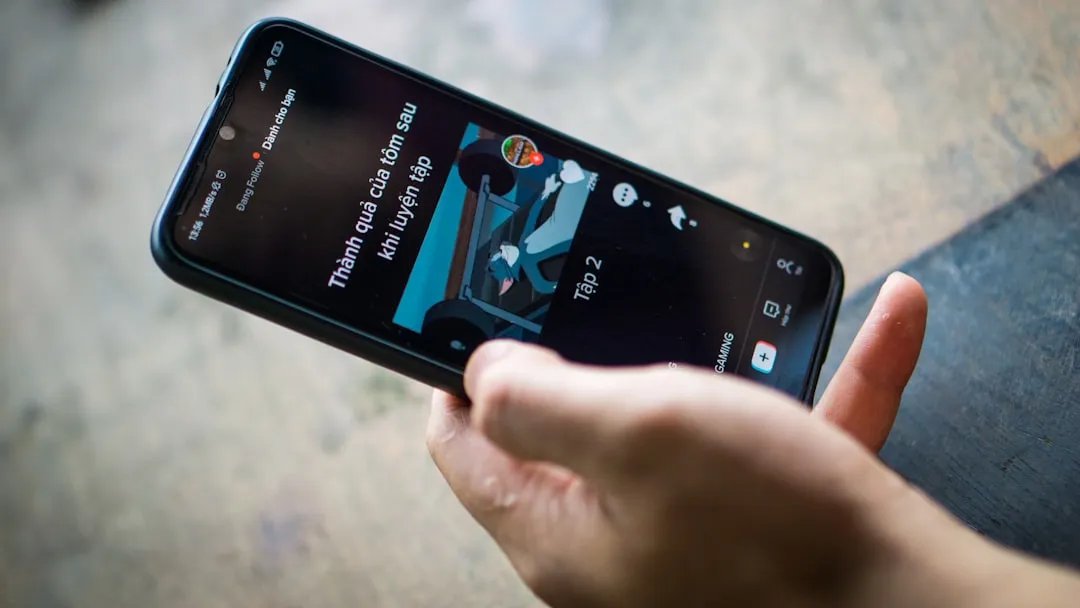
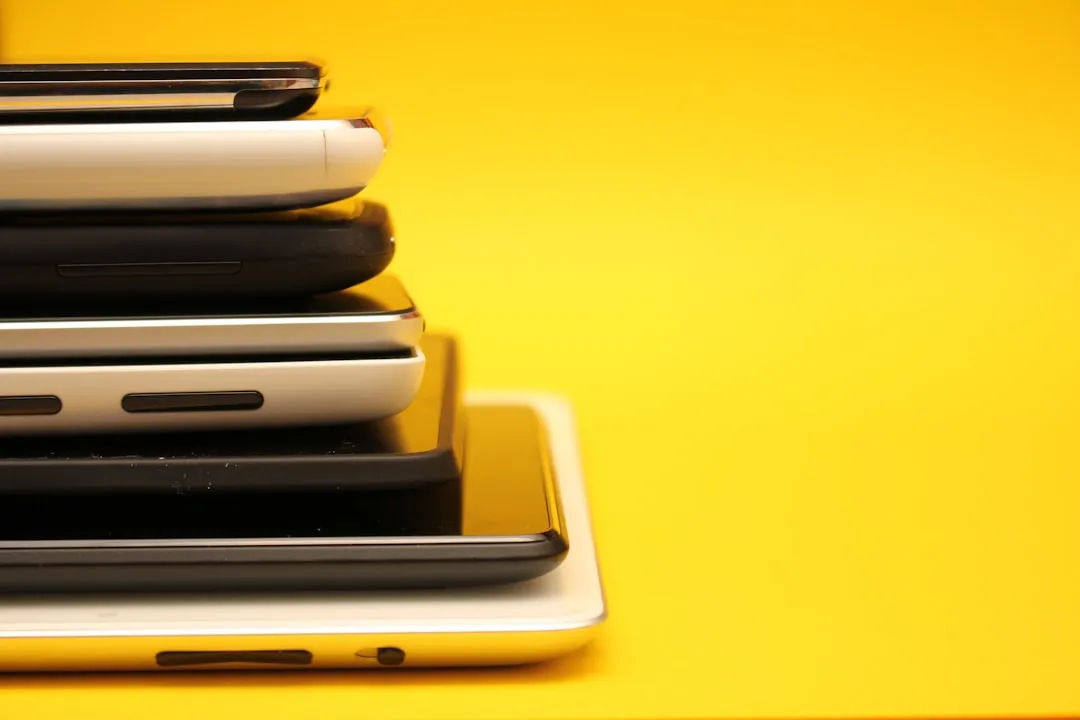

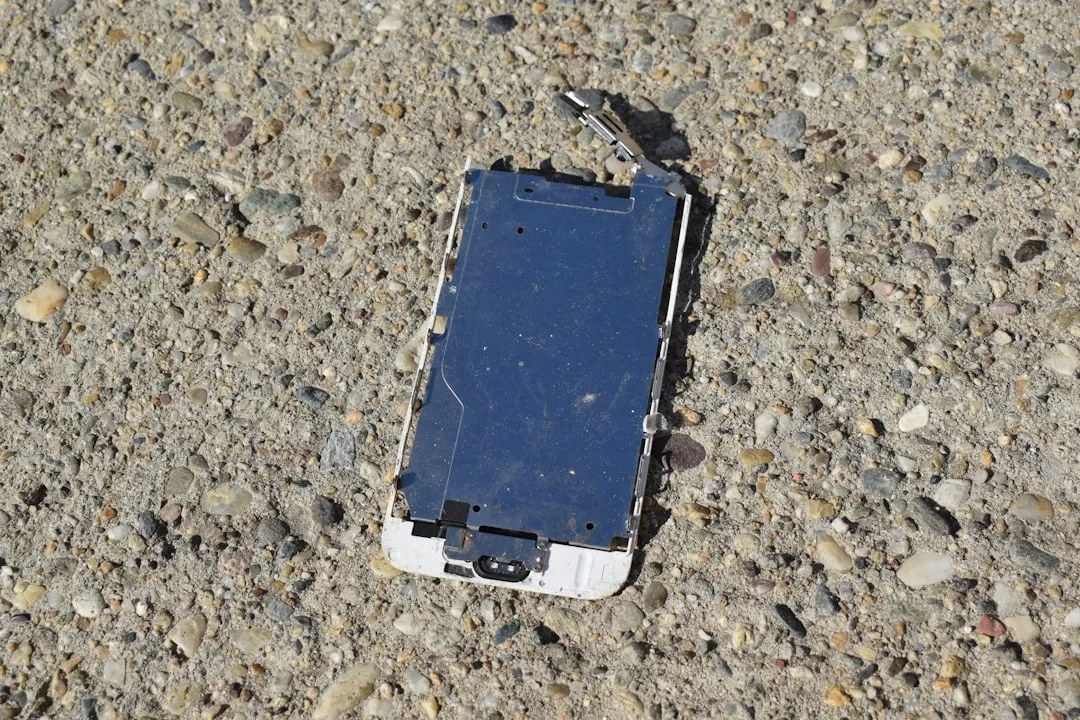
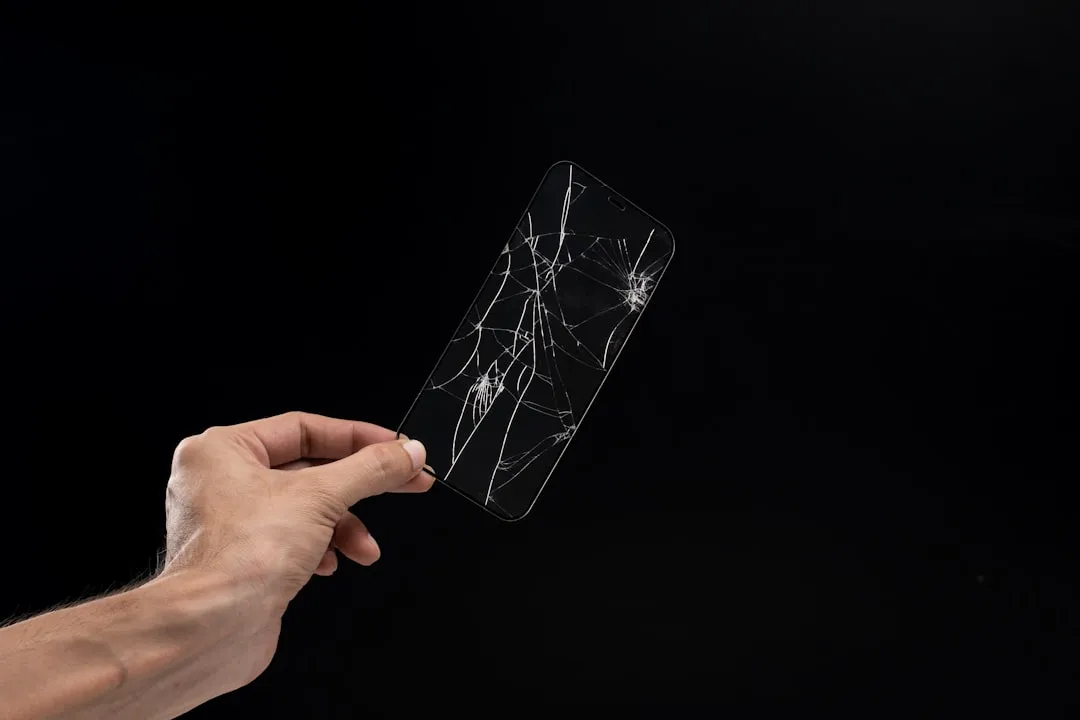
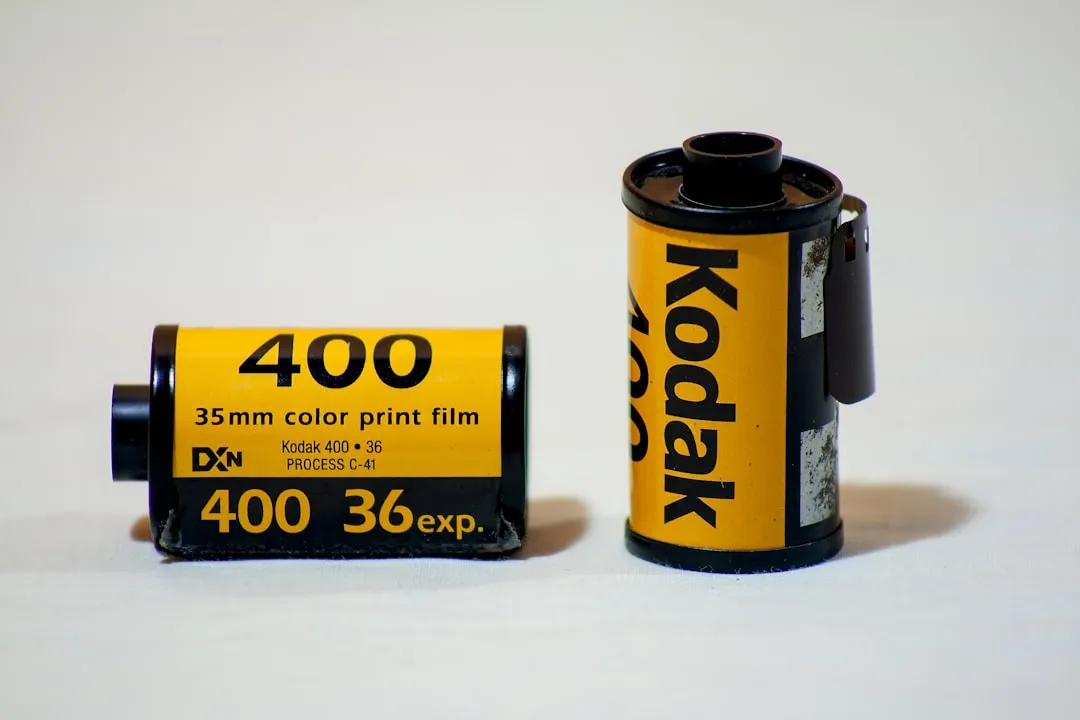
Comments
Be the first, drop a comment!